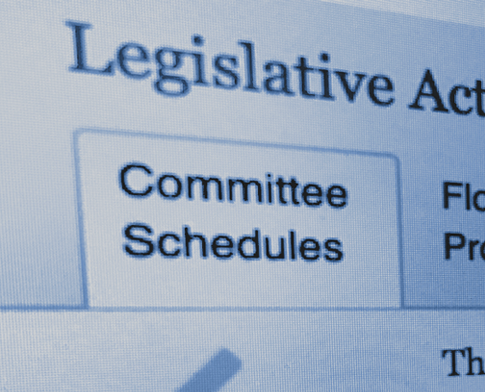Health Update (June 29)
Friday morning (Jun. 26), House Speaker Nancy Pelosi (D-CA) announced the House will hear debate on ACA enhancement legislation on Monday (Jun. 29). The House will spend the rest of the week on the recently proposed infrastructure package, H.R. 2. The legislative process will be outlined in the Rules Committee on Monday.
Additionally, the White House Coronavirus Task Force held a briefing outlining COVID-19 case numbers, the state of PPE distribution, and Operation Warp Speed.
To view an executive summary of the Pelosi presser, click here.
To view an executive summary of the Task Force briefing, click here.
CMS Creates Office to Reduce Regulatory Burden
On Tuesday (Jun. 23), CMS announced the creation of the Office of Burden Reduction and Health Informatics. A product of the agency’s Patients Over Paperwork (PoP) Initiative, the office will unify CMS’ efforts to reduce administrative and regulatory burdens on providers.
The new office will work across Medicaid, Medicare, CHIP, and the Health Insurance Marketplace to decrease the amount of time clinicians and providers spend on CMS-mandated compliance. Additionally, the office will increase focus on the use of health data and clinician information to improve patient outcomes.
“The Office of Burden Reduction and Health Informatics will ensure the agency’s commitment to reduce administrative costs and enact meaningful and lasting change in our nation’s health care system,” said CMS Administrator Seema Verma.[1]
“Specifically, the work of this new office will be targeted to help reduce unnecessary burden, increase efficiencies, continue administrative simplification, increase the use of health informatics, and improve the beneficiary experience,” Verma added.
To view the CMS announcement, click here.
Dems, Administration Move on ACA
House Rules Sets Debate Guidelines ACA Enhancement Bill: The House Committee on Rules met Thursday (Jun. 24) to rule on six legislation measures, including the State Health Care Premium Reduction Act (Patient Protection and Affordable Care Enhancement Act). The rule provides for three hours of debate, divided equally among and controlled by the chairs and ranking members of the Committees on Education and Labor, Energy and Commerce, and Ways and Means.
The rule also self-executes E&C Chairman Frank Pallone’s (D-NJ) manager’s amendment. The amendment provides for DACA recipients to be treated as lawfully present for purposes of enrollment in and financial assistance for ACA Marketplace coverage, in keeping with how DACA recipients are treated in other parts of the law.
Additionally, it provides for $2 billion to be appropriated to NIH to support the NIH Innovation Projects authorized under 21st Century Cures and amends the sunset date for the primary care bump from 2025 to 2024.
House Speaker Nancy Pelosi (D-CA) has indicated the chamber will debate the measure Monday (Jun. 29).
Admin Pushes for Overturn of ACA: Thursday (Jun. 25) night, the Trump administration asked the Supreme Court to overturn the ACA. A new legal brief produced by the Justice Department argues without the individual mandate, which was eliminated by the previous Republican-led Congress, the entirety of the ACA is invalidated.[2]
The lawsuit, filed over two years ago by a group of Republican-led states, threatens the health insurance of over 20 million people and protections for pre-existing conditions.
Judge Upholds Hospital Pricing Transparency Rule
On Tuesday (Jun. 23), a federal judge confirmed the Trump administration’s hospital pricing transparency rule, which requires hospitals to publish the negotiated rates with health insurers. U.S. District Judge Carl Nichols upheld the action, and applauded HHS’ efforts to make hospitals disclose this information without violating their First Amendment rights.
The mandate intends to drive down health care costs by making the $3.6 trillion health care industry’s private pricing methods public. However, industry groups argue these regulations will benefit other influential organizations while undermining negotiations between hospitals and health insurers.
Hospitals that violate the policy are subject to a $300 fine per day. The Trump administration has yet to enforce a similar transparency requirement for labs and providers to post their prices for COVID-19 tests.[3]
Dunford Eyed for Coronavirus Commission Chair
House Speaker Nancy Pelosi (D-CA) and Senate Majority Leader Mitch McConnell (R-KY) are considering Gen. Joseph Dunford to chair the Congressional Oversight Commission.
The commission, created by the CARES Act, is charged with overseeing a $500 billion fund run by the U.S. Department of Treasury and the Federal Reserve. The fund is meant to aid local governments and businesses who have been severely impacted by the COVID-19 pandemic.
Dunford served as chairman of the Joint Chiefs under Presidents Barack Obama and Donald Trump, and could potentially bring forth bipartisan efforts to the work of the commission. The four other commission members have issued two monthly reports without an appointed chair and continue work on preparing an approach to handle these funds.
Senate HELP Committee Examines U.S. Pandemic Preparedness
The Senate HELP Committee met Tuesday (Jun. 23) to hear from public health experts on what COVID-19 has taught America about pandemic preparedness. In his opening statement, Chairman Lamar Alexander (R-TN) detailed his white paper – linked below – on what must be done to prepare for the next pandemic. His recommendations include: increasing research & develop capabilities for testing and treatments, enhancing surveillance mechanisms, revamping the Strategic National Stockpile (SNS), improving public health department capabilities, and defining the roles and responsibilities of leadership. Ranking Member Patty Murray (D-WA) questioned the logic of addressing this topic while the pandemic is ongoing.
Witnesses said Congress must create a budgetary mechanism that will ensure sustained public health funding for pandemic preparedness. Former Senate Majority Leader Bill Frist recommended creating a mandatory Health Defense Operations budget. Additionally, witnesses emphasized the need to incentivize the private sector to invest in pandemic preparedness infrastructure (i.e. domestic manufacturing sites), either through tax incentives or by creating an artificial market through public investment. Democrats on the committee highlighted underlying health disparities in minority communities that must be addressed.
To view Alexander’s White Paper, click here.
To view an executive summary, click here.
Senate Homeland Security Panel Evaluates National Stockpile
On Wednesday (Jun. 24) the Senate Committee on Homeland Security & Governmental Affairs convened a virtual hearing to discuss the Strategic National Stockpile’s (SNS) role in responding to the COVID-19 pandemic. Dr. Julie Gerberding, former Director of the CDC, explained the inconsistent purpose of the SNS and emphasized the need to establish a clear directive and define a leadership structure. Dr. Daniel Gerstein, senior policy researcher at the RAND Corporation, also stressed the need to clarify the SNS’ role and to codify it in law such that it would be insulated from impulsive administrative changes. Mr. Andrew Phelps, Director of the Oregon Office of Emergency Management, pointed out the issues with the SNS and the delay in response that followed. Additionally, he expressed a need for clarity between state and federal governments’ responsibilities relating to the SNS. Mr. Gregory Burel, former Director of the SNS, outlined the importance of the stockpile and echoed the sentiments of the other witnesses.
To view an executive summary, click here.
House E&C Holds Hearing on Admin Response to COVID-19
The House Energy & Commerce Committee held a hearing on Tuesday (Jun. 23) to assess the Trump administration’s response to the COVID-19 pandemic. CDC Director Dr. Robert Redfield, spoke about the recent rise in cases and how increases in testing and community transmission are likely causes. Dr. Anthony Fauci, Director of the National Institute for Allergy and Infectious Diseases (NIAID) and the National Institutes of Health (NIH), discussed the status of vaccines and stated that the leading treatment candidate will enter phase III clinical trials in July. Admiral Brett Giroir, Assistant Secretary for Health at the Department of Health and Human Services (HHS), provided an update on testing in the U.S. and shared that the country is performing around 500,000 tests per day which is on track to be performing between 40 and 50 million tests per month in the fall. Dr. Stephen Hahn, Commissioner of the Food and Drug Administration (FDA), talked about the FDA’s distribution of Emergency Use Authorizations (EUA) and that the FDA has begun to review its actions to address the pandemic in an effort to identify the most effective strategies.
To view an executive summary, click here.
Ways & Means Hears From Experts on Nursing Home Crisis
On Thursday, June 25, the House Ways and Means Committee Subcommittee on Health convened a virtual hearing to examine the COVID-19 pandemic’s impact on nursing homes in the U.S. The committee heard from several individuals on the effects of the administration’s deregulation of the nursing home industry and the difficulties facilities have faced securing personal protective equipment (PPE).
To view an executive summary, click here.
References
[1]Centers for Medicare & Medicaid Services. “CMS Unveils Major Organizational Change to Reduce Provider and Clinician Burden and Improve Patient Outcomes.” [Press Release] 23 Jun 2020.
[2]Luthi, Susannah. “Trump administration asks supreme court to overturn Obamacare.” Politico Pro, 25 Jun 2020.
[3]Luthi, Susannah. “Trump Scores Court Win on Hospital Price Transparency Rule.” Politico Pro. 23 Jun. 2020.
HOUSE.GOV
The Week Ahead
For the main events of the next week and more, go straight to the key events on the house.gov website.
SENATE.GOV
The Week Ahead
For the main events of the next week and more, go straight to the key events on the senate.gov website.


